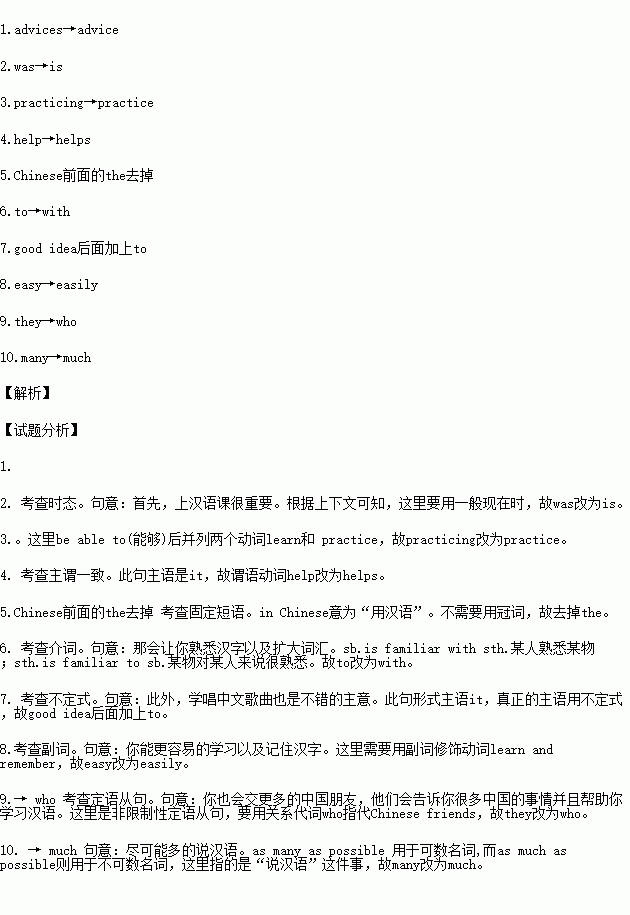جâؤ؟ؤعبف
¼ظ¶¨س¢سï؟خةدہدت¦زھاَح¬×ہض®¼ن½»»»ذق¸ؤ×÷خؤ£¬اëؤمذق¸ؤؤمح¬×ہذ´µؤزشدآ×÷خؤ،£خؤضذ¹²سذ10´¦سïرش´يخَ£¬أ؟¾نضذ×î¶àسذء½´¦،£أ؟´¦´يخَ½ِةو¼°ز»¸ِµ¥´تµؤشِ¼س،¢ة¾³»ٍذق¸ؤ،£
شِ¼س£؛شعب±´ت´¦¼سز»¸ِآ©×ض·û؛إ(،ؤ)£¬²¢شعئندآأوذ´³ِ¸أ¼سµؤ´ت،£
ة¾³£؛°ر¶àسàµؤ´تسأذ±دك( \ )»®µô،£
ذق¸ؤ£؛شع´يµؤ´تدآ»®ز»؛لدك£¬²¢شع¸أ´تدآأوذ´³ِذق¸ؤ؛َµؤ´ت،£
×¢زâ£؛1.أ؟´¦´يخَ¼°ئنذق¸ؤ¾ù½ِدقز»´ت£»2.ض»شتذيذق¸ؤ10´¦£¬¶àصك(´سµع11´¦ئً)²»¼ئ·ض،£
I،¯d like to give you some advices on how to learn Chinese well.
First, it was important to take a Chinese course, as you،¯ll be able to learn from the teacher and practicing with your classmates. Then, it also help to watch TV or read books, newspapers and magazines in the Chinese whenever possible. It will make you familiar to Chinese characters and enlarge your vocabulary even before you notice it.
Besides, it is a good idea learn and sing Chinese songs, because by doing so you،¯ll learn and remember Chinese words more easy. You can also make more Chinese friends, they will tell you a lot about China and help you learn Chinese. Try to speak Chinese as many as possible.

